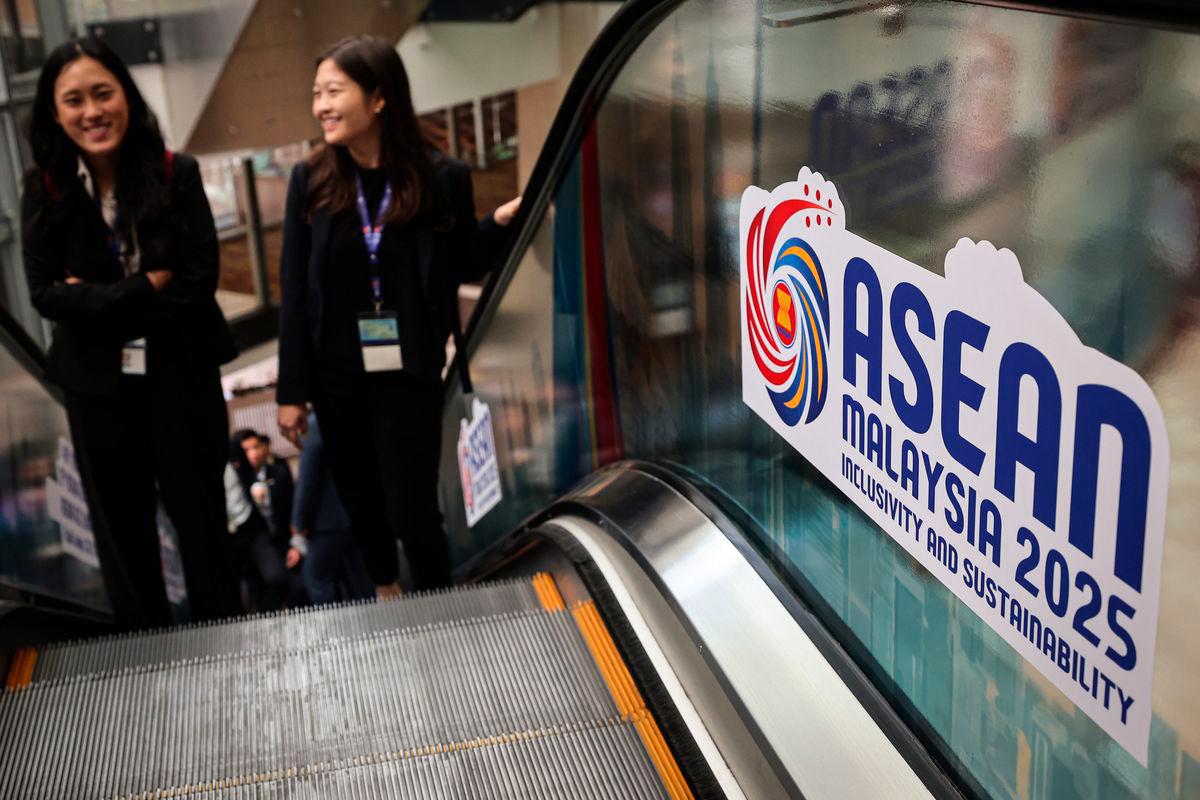KUALA LUMPUR: As ASEAN prepares to convene its high-level meetings next week, analysts have warned that the ASEAN Political-Security Community (APSC) must undergo urgent reform to remain relevant and effective amidst rising geopolitical tensions and evolving security threats.
Associate Professor at the Centre for Indo-Pacific Studies of Jawaharlal Nehru University in New Delhi, Dr Rahul Mishra, and Universiti Malaya Foreign Affairs, Security, and Strategy Analyst, Collins Chong Yew Keat, argued that while ASEAN has made strides in non-traditional security cooperation, it remains structurally hamstrung in the face of traditional security challenges.
“For instance, ASEAN’s limited response to the post-coup crisis in Myanmar highlights its institutional weaknesses in enforcing norms and responding decisively to internal conflicts. Similarly, progress on the resolution of the South China Sea dispute remains negligible,” he said.
As the ASEAN Community Vision 2045 is slated to be launched during the 46th ASEAN Summit on May 26, Rahul said APSC 2.0 should be more agile, inclusive, and capable of dealing with the emerging challenges.
“Reforms must be done in anticipation of both challenges and opportunities the region would have in the next two decades,” said the analyst, who is also a Senior Research Fellow at the German-Southeast Asian Centre of Excellence for Public Policy and Good Governance, Thammasat University, Thailand.
On the 29th APSC council meeting scheduled on Sunday, Rahul said South China Sea dispute and the ongoing humanitarian crisis in Myanmar should be at the top of the agenda along with issues concerning the United States (US)-China rivalry, the impact of US President Donald Trump’s tariff war on the region’s economies, as well as cyber frauds and crimes.
“APSC must work towards strengthening internal cohesion and present a united, collective stand on issues that matter most. A revised policy approach on the Indo-Pacific, Myanmar, and South China Sea dispute is urgently needed,” he said.
Rahul also noted that the APSC should assume a decisive leadership role in promoting regional rules-based frameworks, particularly in areas like maritime conduct, cyber governance, and crisis management.
He said as ASEAN Chair this year, Malaysia should work towards making a more action-oriented approach to the Five-Point Consensus on Myanmar, push for progress on the Code of Conduct (COC) in South China Sea and advocate for multilateral approaches to dispute resolution.
Meanwhile, Chong said APSC must be bold enough to break away from past stagnation and reinvent itself to suit modern and future needs to accommodate the changing risks and threats.
He said this must include the audacity to initiate new possibilities and mechanisms of new defence alliances and in creating a robust, credible and multi-layered deterrence capacity away from the reliance on diplomacy and goodwill and the mere symbolic mechanisms of the agreements on non proliferation and commitment from external powers on non-escalations.
“The new model will have to be based on external support and deterrence in security, and cannot be confined to a regionally based self-defence capacity alone,” he added.
In an in-depth assessment of the APSC since its formal inception in 2015, Chong said the region has seen its fair share of divided responses to both the US and China’s power ventures and overtures.
The varying levels of influence and presence by both Beijing and Washington in individual ASEAN member states have created equally varied levels of affiliation, dependence, entrapment, and limitations in each country’s response to the two powers.
“This has further limited the efficacy of the APSC to one that is mainly confined to managing non-traditional threats and areas of low risks and low politics, as opposed to the more pressing areas of traditional threats and state-led high-intensity conflicts,” he said.
Chong also agreed with Rahul that the ongoing South China Sea dispute will remain a key focus of the APSC meeting, alongside the recent India-Pakistan conflict, where ASEAN, under Malaysia’s leadership, will seek to take on a deeper role in addressing both issues.
“For South China Sea, Malaysia is expected to increase its diplomatic weight and leverage to call for the hastening of the COC, while also pushing the full Malaysian and ASEAN role and weight in trying to lower the temperature in South Asia, and to ensure the medium term adherence to the ceasefire agreed upon,” he said.
Regarding the crisis in Myanmar, Chong said Malaysia should use its new approach in dealing with both the junta and the National Unity Government (NUG) as a new opening to push for a new innovative approach.
He said while garnering support from immediate neighbours, especially Thailand, Malaysia is expected to address past divisions within ASEAN over the Myanmar crisis and pursue parallel solutions beyond the confines of the Five-Point Consensus (5PC).
The 46th ASEAN Summit, slated to be held at the Kuala Lumpur Convention Centre (KLCC) on May 26 and 27, will bring together leaders from ASEAN member states to discuss regional issues and chart the future direction of ASEAN cooperation.
With the theme ‘Inclusivity and Sustainability’, this 2025 edition will mark Malaysia’s fifth time chairing ASEAN, following previous terms in 1977, 1997, 2005 and 2015.









